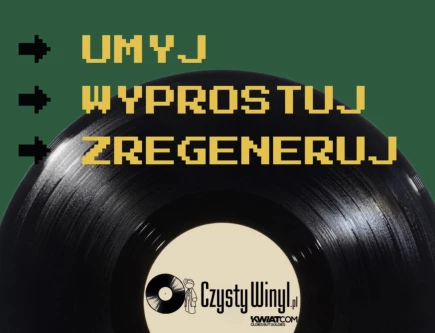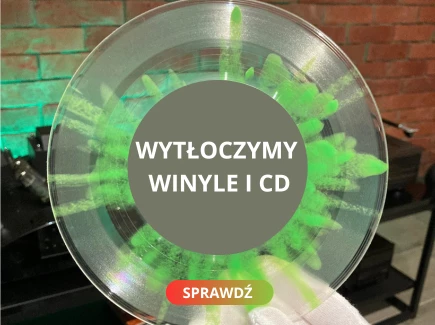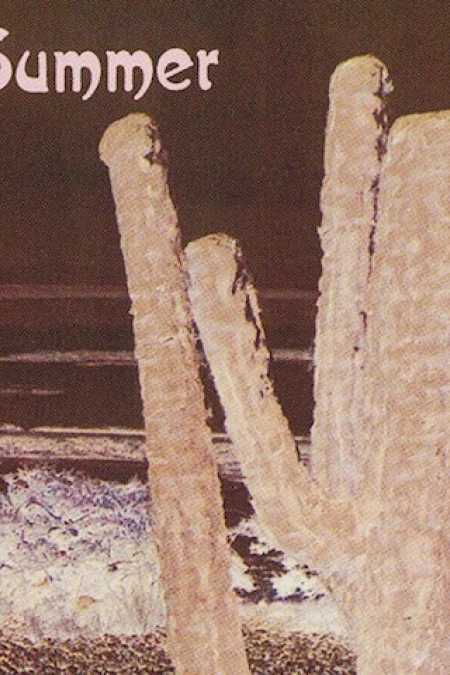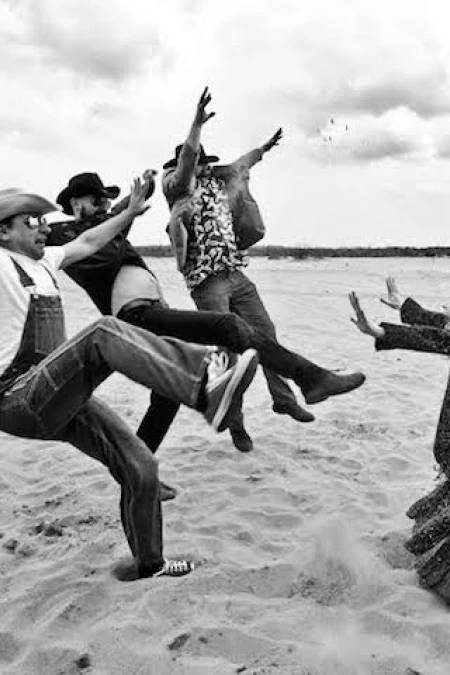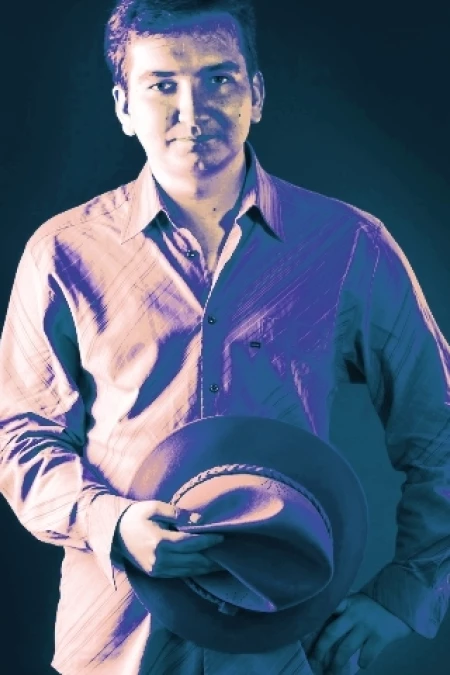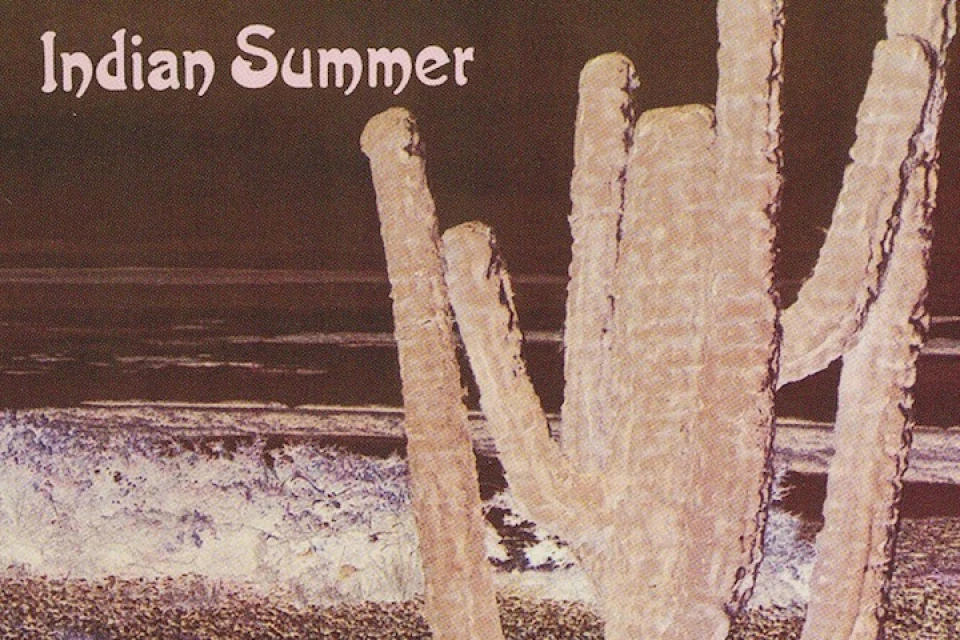
We are talking with Bob Jackson – founder of Indian Summer - about one of the most interesting prog rock group from 1970s.
Konrad Helwig Marcin Mieszczak: We are very glad that we can talk to the creator of a release as intriguing and unique as Indian Summer's only album. Please, tell us first about the days that preceded the recording sessions. Where did you meet your bandmates? How was the idea to found the Indian Summer band conceived. Where does that name come from?
Bob Jackson: The band was formed in Coventry, England, our home town.The birth of the band co-incided with my purchase of my first proper keyboard, a Hammond organ, and spending time getting the material together. The original line-up changed over a period of time and only I and Paul, the drummer from the original lineup remained. Eventually this was completed by Colin on guitar and Malcolm on bass. These changes helped the band to grow nearer to the original direction that I’d had in mind when the band was formed. I had originally toyed around with the band name ‘Lush’, but finally, we agreed on ‘Indian Summer’, meaning the arrival of something unexpected….
Every time we listen to your album we are more and more convinced that this is simply a perfect progressive record. The compositions, the choice of instruments, guitars, organs, the accordion... who had you listened to? Who had served as your inspiration? Which band's sound was a model for you?
The ethic was to produce something completely original and fresh. However, being surrounded by bands like Traffic, Deep Purple, Family, Spooky Tooth, Pink Floyd, /King Crimson, Arthur Brown etc had to have had an influence. I guess most composers unconsciously pick up influences from their contemporaries.
(Incidentally, I am a self taught musician and I was particularly influenced by Jimmy Smith, a Hammond jazz player, and Ray Charles for vocals. However, by my late teens, I decided that I didn’t want to lean too heavily on those blues influences and so, concentrated on forging my own musical direction).
You've never followed well-trodden paths, but have rather opted for the new ones. We can't really compare your LP to any known album. Indian Summer has its very own place in the history of music. Was it your goal to create an album that was different that all that was being done around that time?
As I indicated the plan was to be unique. I was listening to all the new bands of the day. There was such a variety of new creative music appearing, that inspired me. Before the Internet, bands worked as small ‘cottage industries’, able to get their stuff together without being fully aware or influenced by what else was going on. That lack of communication can be a great spur to creation and original thought. Above all, I wanted to create new material that didn’t rely on the traditional song and musical structures of the period, with a poetry and mystery to the lyrics and a big dynamic sound.
The sound of the album is very homogeneous (the tracks have similar length, none can be easily distinguished from the rest, each one has a similar feel to it, the composition choice and stylistics are very much alike, and so are music motives). It all seems carefully planned. We've always looked at this album solely as something definite and cohesive rather than a random collection of songs gathered together. Did you have such a concept in mind during recording?
Even before we arrived in the studio, there was a conception that the album would be a cohesive whole, rather than a collection of different song styles. The album was pretty much based on the bands stage act. This was a bit rawer than the album sound might have you believe. Quite a bit heavier….that’s possibly the reason why we were hooked up with the same team as Ozzie and the guys.
Jim Simpson recommended you to the chairman of Neon Records (Olav Wyper), who published your album. Some well-renowned names were invited to contribute: Rodger Bain handled the production (the first three albums by Black Sabbath, two first by Budgie, Judas Priest's debut album), the cover was designed by Marcus Keef (Black Sabbath self-titled debut album, Beggars Opera's “Act One” and “Affinity”, Colosseum's “Valentyne Suite”, Hannibal, Tonton Macoute, Spring). I think it's fair to say you were lucky production-wise – you found a little, but good record company and got to collaborate with real professionals. Tell us some more about this collaboration...
Everybody was pretty easy to work with. Olav was supportive and Rodger Bain was a nice guy too, he was the one to finalise the choice of songs to record.
Neon Records was a progressive subsidiary label of RCA. They released music by Tonton Macoute, Spring, Raw Material among others. What you have in common is that you all released truly wonderful albums – both music- and production-wise. What you share is also how very short-lived your bands were, they usually ended up releasing just one album. We can't help but ask where all those analogies come from. Is it because the record label didn't have enough resources to properly promote your music? Where lay the problem?
Of course we were fortunate to get any deal at all. But, on a business level, this connection was something of a gamble. Olaf had left Vertigo to recreate a similar type of contemporary label (Neon) for RCA. . But this record company wasn’t Vertigo, which was well-established as a progressive label. Neon had no track record. The choice of artists for the new label were, in my opinion, a little too diverse in style. Consequently, Neon didn’t fare well and soon went under.
There’s another story to be told too. Whilst in the middle of being signed to Neon, unbeknownst to us, we were being head-hunted by Chrysalis. They actually sent a representative from London to try to find us and they were most disappointed when we revealed we had already committed to sign with someone else. Now, like Vertigo they were already well established label with a pedigree. Would we have had a longer more successful career if we had signed with Chrysalis instead? We’ll never know, but I think it’s highly likely.
Did the producer have a considerable impact on the way the album sounds or was it for the most part your doing?
A little bit of both. To a large extent the nature of the material suggested the production sound. It was always going to be grand/lush. Sonically, of course, the result is down to the engineer and producer.
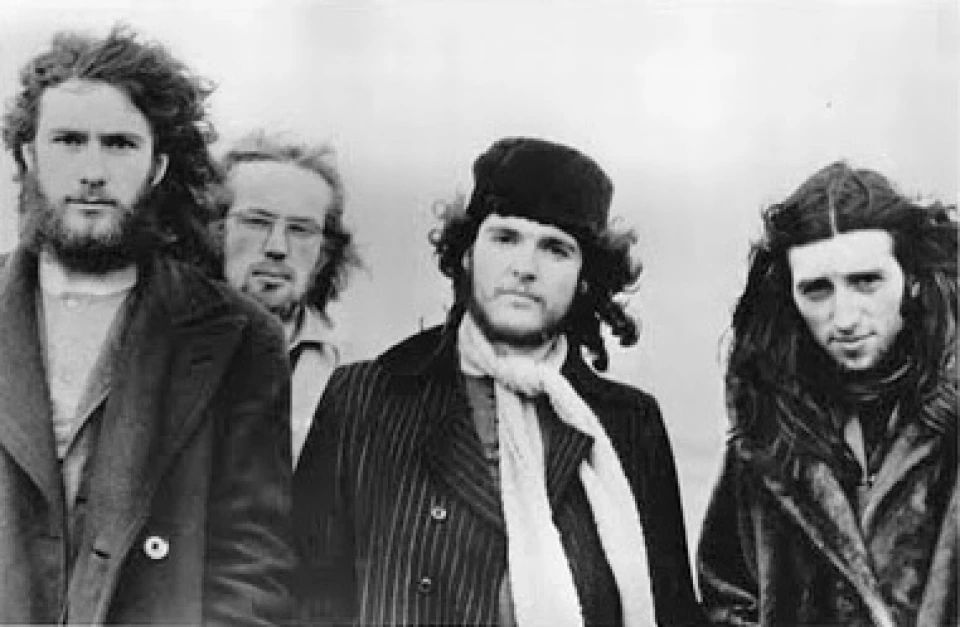
Can you still remember the recording session? What was it like to work on your album?
Exciting. At this point we were novices in the studio and Trident was one of the biggest and best. However the budget wasn’t massive so we didn’t have the luxury of spending days on achieving the optimum sounds and takes. So, we worked through the process pretty quickly, only doing one or two takes on each backing track. I played Hammond on these takes, and overdubbed the string parts on the Mellotron as overdubs. Finally, the vocals and that was it.
Was the atmosphere your priority during recording or perhaps some other aspects were considered more important?
We were only provided with a limited budget and time scale to get everything completed,
Trying to get the feel and mood of the tracks right was important, but I was also aware that this was our first album and we only had so long. Truthfully, it was time that was the overriding concern. We didn’t have the luxury of experimenting; the opportunity to be creative with arrangements etc. Primarily, we had to be efficient and get everything done.
We read somewhere that you supposedly weren't quite satisfied with the sound of the studio recording. Provided that's true, what was the problem?
That’s true. None of us were happy with the final version of the album. It isn’t that it’s bad - it’s just that it could have been so much more.
I believe it was overly compressed in the mastering stage which knocked out a lot of the dynamics out of the sound. This is a technical thing that not everybody may notice, but I was acutely aware of it. As I mentioned previously, our stage sound was very dynamic, so we didn’t feel that the album sound represented or had captured that accurately.
The music you created packs an incredible deal of emotions. The atmosphere of the album seems cold, nostalgic, somewhat depressing, deprived of sun, makes you think of forgotten, far-away, wild lands, uncharted, unwelcoming, devastated by wars, conflicts, soil burnt by cataclysms. How would you describe the atmosphere of the record?
As with most art, I guess it’s all in the eye, or in this case, ear of the beholder. In retrospect, I guess the band was distancing itself from the pop commerce-based approach. It was designed to transport you and make you think rather than simply entertain. I’m pleased the intention of other-worldliness communicated itself.
You were not hippies, we can't really find any of such traces in your music. Was there any ideology the members of Indian Summer associated themselves with?
No, we weren’t really hippies; we didn’t ‘drop out and turn on’. However, we did feel the vibe of that movement, an affiliation to all the same values. Peace, Love, Freedom, Questioning the System etc.
We can see a cactus and a coyote on the album cover. Whose idea was it? Tell us where such views can be observed live. How would you interpret the cover image?
That idea was all Keef’s. We talked about the atmosphere that we wanted reflected in the design, but Keef followed his own nose. He included the image of a Fox, which was a device I used in several of the lyrics to represent the sinister. He told me that he took an image of a British beach, superimposed the fox and cactus on it, and then played about toning the whole thing into something surreal. It’s certainly enigmatic.
What about the Europe tour you did to promote your album? Where and with whom did you play? How do you remember this experience? How was your music received?
Haven’t got a full recollection, but I do remember playing in Switzerland…The shows went down well, but the deal we went over on wasn’t the best. Our accommodation hadn’t been properly organized, and, with no other option I can recall all of us, along with the crew, settling down to sleep on the floor of the gig in we had just performed, without the permission or knowledge of the venue! The glamour of show business……!!
What influenced the decision to disband? What was the main reason?
In a word, money! Our management/agent hadn’t been coming up with any work and we were left to languish; a shame, because when we did play, we were always well received. We didn’t see any of the recording advance money. Colin had to sell his Gibson, for a knock down price, because he couldn’t eat or pay his rent. It really got pretty bad. There really was no alternative.
You recorded a single “Walking On Water”, which has never been released. Do you happen to have any version of it? Is this possible to have a listen?
Yes, we had a single to do….Neon worried about their own situation, and probably feeling that the band was a slow burner and not commercial enough, suggested that we record a cover of ‘Ride on Pony’, a Free song. I loved Free but … This was anathema to us artistically. They were adamant, so we had to say OK, but we negotiated with them. We had a song of our own that we wanted to try. We went down to the studio and made sure that we did the most lack-lustre version of the cover that we could. As it turned out, Neon was crumbling and didn’t put out either recording in the end.
Were there some other compositions from Indian Summer that didn't make the track listing of the album?
There were a few. One of the stronger pieces was ‘The Fox’, which we used to close our live show but it was not selected for the album. I felt that this omission was a mistake.
Do you still have any live recordings from your tours?
Not that I’m aware of.. Maybe the rough studio demos that we made prior to getting the Neon contract are somewhere…
Your album has a cult following and is considered one of the best of the “forgotten” progressive records and the original analogue release turned out to be a highly valuable collectible. How do you feel as one of the creators of this work?
Yeah, of course, it’s nice… fulfilling to think it has since made a connection with people even though it wasn’t a big success at the time.
Are you still being told that you managed to record one of the best progressive albums?
There’s been consistent praise over the years. It continues to surprise me……
What records from the turn of 60s and 70s are the most important for you? What sounds do you prefer nowadays?
Too many to think about. It might sound strange, but although I still play myself, I rarely listen to other radio or recorded Music. A bit like a chef not cooking at home very often, I guess.
Here is one of opinions I found on the Internet “In a perfect world Indian Summer would be playing until today, at big stadiums. And their debut album would win all possible kinds of popularity pools”. Do you think that this scenario was actually possible?
It’s a lovely thought…What a shame it isn’t a perfect world...
Thanks a lot for interview.
Questions prepared: Marcin Mieszczak & Konrad Helwig | Psychosonda.pl



